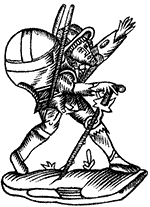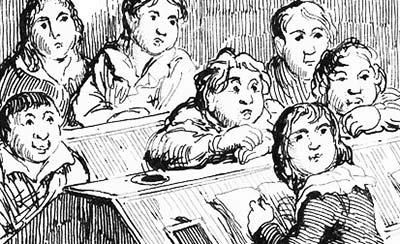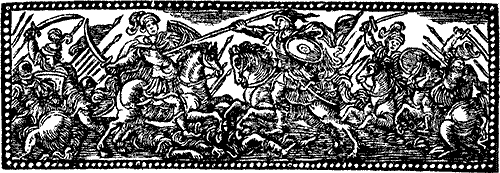July 2015
Montaigne 1.25
3 July 2015, around 15.22.

We labour but to cram our memory, and leave the understanding and the conscience empty. Even as the birds sometimes fly in search of grain, and bring it in their beaks without tasting it, to feed their young, so do our pedants go picking knowledge out of books, carrying it at the end of their lips, only to spit it out and scatter it to the winds.
It is remarkable how aptly I come in to exemplify this folly. Am I not doing the same thing in the most part of this composition? I go sniffing about among books, now here now there, for the sentences which please me, not to store them, for I have no storehouse, but to transplant them to this book where, to tell the truth, they are no more mine than they were before….
But, and this is the worst part of it, their scholars and their little ones are not fed nor nourished by this knowledge; rather it is passed from hand to hand, to the sole end of making a show of it, to entertain others, and to make up stories of it. It is like a counterfeit coin that has no value in commerce, and is useful only as a counter for casting up.
Montaigne 1.26
10 July 2015, around 5.49.

And besides, I do not compete wholesale with those old champions, and body to body; I do so by repetitions, by frequent and light attacks. I do not stubbornly grapple with them, but only try their strength, and if I try to keep pace with them, I do so hesitatingly. If I could hold my own with them I should be somebody, for I only attack their steepest points.
The problem that has confounded him is nothing more nor less than repetition. He is right not to look for clarification of this problem either in Greek or modern philosophy. The Greeks make the opposite movement. A Greek would choose to recollect without being troubled by his conscience. Modern philosophy makes no movement. In general, it merely makes a commotion. To the extent that it makes a movement, it is always within the sphere of immanence. Repetition, on the other hand, is transcendence. It is good that he does not seek clarification from me, because I have abandoned my theory, the one I have been propounding. Repetition is too transcendent for me. I can circumnavigate myself, but I cannot get beyond myself.
Crambe repetita (38)
15 July 2015, around 9.33.
I agree that we should work and prolong the function of life as far as we can, and hope that Death may find me planting my cabbages, but indifferent to him and still more to the unfinished state of my garden.
Montaigne 1.27
17 July 2015, around 10.54.

Vainglory and curiosity are the two scourges of our soul. The latter prompts us to thrust our noses into everything, and the former forbids us to leave anything unresolved and undecided (182).
- Doubt concerning the ‘miraculous’ spread of information – such one knowing the results of a battle three days away within the hour. Odd not to think of the obvious solution, that both reports (of victory and defeat) would circulate following the engagement, but only one would be shown to be correct by report; and of course no one likes to dwell on their failures of prescience.
- The desire to be more knowledgeable than authorities – thus schoolboys pointing out the falsehood (or improbabilities) in Pliny and such like.
Montaigne 1.28
24 July 2015, around 12.23.

I cannot allow those other common friendships to be placed in the same line with ours. I have as much knowledge of them as another, and of the most perfect of their kind, but I should not advise any one to measure them with the same rule; he would be much mistaken (190).
In his discursive fashion, Montaigne describes several sorts of friendship, of which one sort – such as he apparently experienced with Étienne de La Boétie – is very much out of the common way. The ordinary sort of friendship is haphazard, not the result of any sympathy of mind but rather of circumstance: ‘what we commonly call friends and friendship are no more than acquaintanceships and intimacies contracted by chance for or some advantage, by means of which our souls come together.’ A community of souls sounds like a promising start for a friendship, until he continues: ‘In the friendship I speak of, our souls blend and meld so entirely, that there is no more sign of the seam which joins them. If I am pressed to say why I loved him, I feel that I can only express myself by answering, “Because it was he, because it was I”’ (188).
It hit too close to home, this essay of Montaigne’s ‘On Friendship’ – it drew attention to something I had long noticed and at first made light of, then tried to ignore. In that year, though – in the summer when I was reading this essay – the distinctions of friendship, of what is means to be a friend became with me a sort of ache, as I felt the stitches holding together seams of my friendships begin to strain and begin to unravel. By nature I am a private person, and my friendships are few – by choice and by habit. During that summer the rituals of friendship – the letters, the phone calls, the routine of sympathy – fell to one side, for reasons I do not quite understand nor care fully to examine.
To read, then, of friendship, of the sort of intense friendship that can only be of short duration (do not forget La Boétie died young – Montaigne’s passion could safely transform into mourning, which is easier to sustain than friendship), when I found myself so out of tune with everyone I knew – well, it was miserable. So I did not write about it. Or about anything. I did not dare.
The feeling has not wholly passed. But it is an ache I am now able to examine, which I suppose must be a welcome change. It is, at any rate, a change – for which I am thankful.
Montaigne 1.29
31 July 2015, around 17.49.

And what are these essays but grotesque and monstrous bodies, pieced together of different members, without any definite shape, without any order, coherence, or proportion, except they be accidental?
* * *
These poems may be seen elsewhere.
